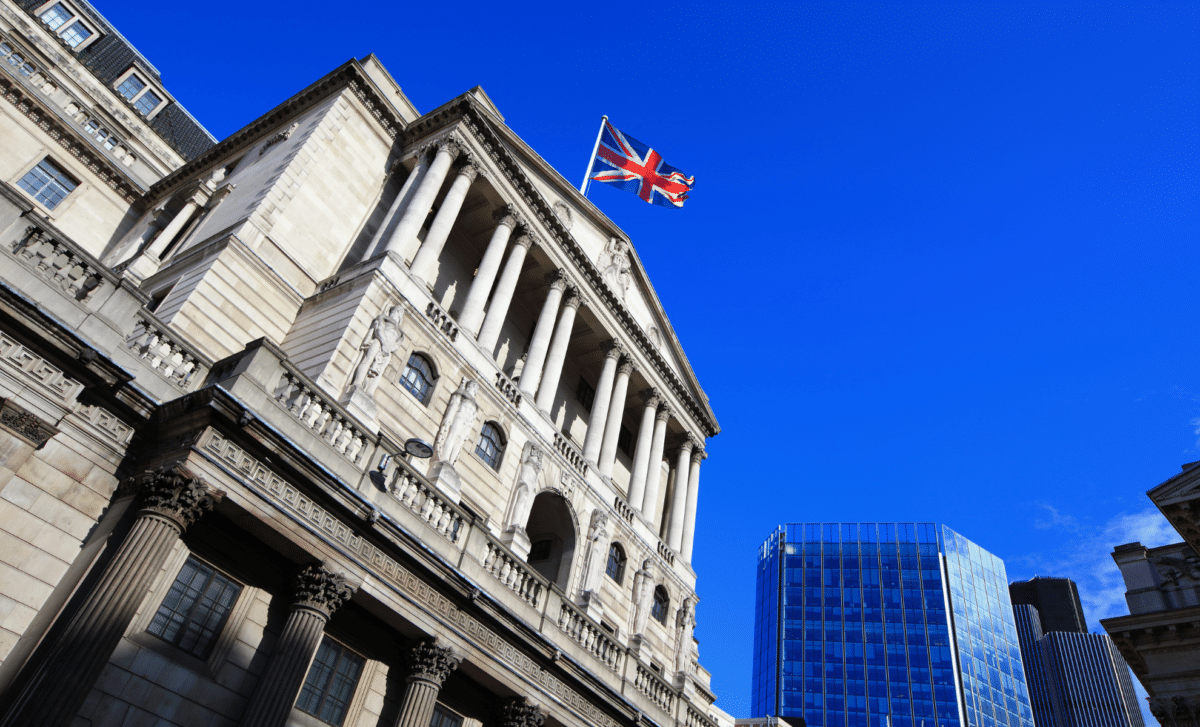Analysts are increasingly noting the Bank of England’s likely recognition of the unexpected progress in curbing inflation. However, the central bank remains hesitant about initiating interest rate cuts.
The Bank of England is Set to Maintain Rates Despite Climbing Inflation Backdrop
The Bank of England’s Monetary Policy Committee is widely anticipated to keep interest rates unchanged at 5.25% during its initial 2024 meeting, following a series of 14 rate hikes aimed at curbing inflation.
The upcoming policy publication, scheduled for Thursday, is expected to unveil new projections highlighting significant declines in UK inflation in the coming months.
The global deceleration in price growth has raised expectations that central banks, such as the European Central Bank and the Federal Reserve, may initiate rate reductions in 2024.
According to UK economist Allan Monks at JPMorgan, the Bank of England may need to adopt a “dovish pivot” this summer, acknowledging the potential for a more flexible monetary policy, while refraining from endorsing expectations of rate cuts in the spring. Monks added, “The BoE’s updated narrative is likely to be that clear progress is being made on inflation, but that it is too early to declare victory.”
The Sharp Falling of a Range of UK Inflation Indicators
In December, UK consumer price inflation rose to 4%, up from 3.9% the previous month. However, this rate remains significantly lower than the levels exceeding 10% recorded the previous year.
During the Bank of England’s meeting, a positive shift in inflation could lead some or all of the three members of the Monetary Policy Committee who have been advocating for higher interest rates to reconsider their positions, experts have suggested.
Banking professionals will closely monitor whether the most dovish committee member, Swati Dhingra, will advocate for immediate reductions in borrowing costs.
Central bankers find themselves in a dilemma: if they decide to lower interest rates prematurely, they run the risk of a resurgence in price pressures, but delaying the move for too long could harm not only the economy but also the labour market.
Based on official data, the UK’s economic growth has remained stagnant since the summer of last year. In November, the Gross Domestic Product declined by 0.3% on a month-on-month basis, following a similar increase in the preceding month.
In the meantime, the Office for National Statistics refrained from releasing its customary jobs data due to issues with the underlying survey. Alternative data sources indicate that unemployment has remained at low levels, while hiring has decreased.
The Bank of England is expected to revise its inflation projections downward and enhance its growth forecast in the upcoming week, as lower wholesale gas prices are anticipated to result in reduced energy bills.
Analysts expect inflation, as measured by CPI, to decline to around 2% in the second quarter of the year, a figure lower than the Bank’s earlier projection of 3.6%.
When Will the Bank Begin to Cut Rates ?
The most crucial aspect of the situation is that the core inflation rate may experience a rapid decline, possibly dropping below the 2% target by spring, especially with the actual decrease in domestic energy prices. However, interest rates are not expected to follow suit as swiftly.
The bank is considering various approaches to gauge underlying inflation, such as core inflation, which excludes the impact of energy and food prices.
It remains uncertain, especially concerning whether prices and wages have fully recovered from the period of above-average surges. Some experts contend that the Bank may opt to wait until it obtains more reliable data.
There could be a considerable challenge in resisting rate cuts if inflation falls significantly below the 2% threshold and the economy shows no signs of improvement. Business pressures are likely to advocate for rate reductions, and political tension may escalate in an election year, potentially even involving the government.
The bank will have an opportunity to delve into these issues during its meeting on Thursday, where it will also unveil its quarterly assessment of the UK’s economic conditions and inflation expectations.
The voting patterns of the nine committee members responsible for interest rate decisions will be closely watched. In a tense election year, where a series of rate cuts could be eagerly anticipated by the sitting government to underscore a ‘decisive moment,’ the bank’s independence faces one of its most significant tests.
Therefore, this Thursday is unlikely to see rate cuts, but the bank may shift away from its current language suggesting the possibility of rate hikes.









